Fraud Customer

What are some tips for avoiding telecommunications fraud ?
Telecommunications fraud can have serious consequences, but there are steps you can take to avoid becoming a victim. Be skeptical of unsolicited calls and messages, use strong passwords and two-factor authentication, keep software up-to-date, be cautious with public Wi-Fi networks, and educate yourself about common scams. By following these tips, you can protect your personal information and finances from potential fraud attempts.

What are the most common types of telecommunications fraud ?
Telecommunications fraud is a serious issue that affects millions of people worldwide. It involves using technology to deceive individuals or organizations for financial gain. Here are some of the most common types of telecommunications fraud: 1. Phishing Attacks: In this type of attack, cybercriminals send fraudulent emails or messages that appear to be from a legitimate source, such as a bank or a government agency. The message typically asks the recipient to click on a link or provide sensitive information, such as login credentials or credit card details. Once the victim provides the requested information, the attacker can use it to access their accounts and steal money or personal data. 2. Vishing Attacks: In this type of attack, cybercriminals use automated phone calls or live callers to trick victims into providing sensitive information over the phone. The attacker may pretend to be from a legitimate organization, such as a bank or a government agency, and ask for personal information or payment for a fake service. 3. Smishing Attacks: Smishing, or SMS phishing, is a relatively new form of telecommunications fraud that involves sending fraudulent text messages to victims' mobile devices. These messages often claim to be from a legitimate source, such as a bank or a government agency, and ask for sensitive information or payment for a fake service. Unlike traditional phishing attacks, which rely on email, smishing attacks use SMS messages to reach victims directly on their mobile devices.
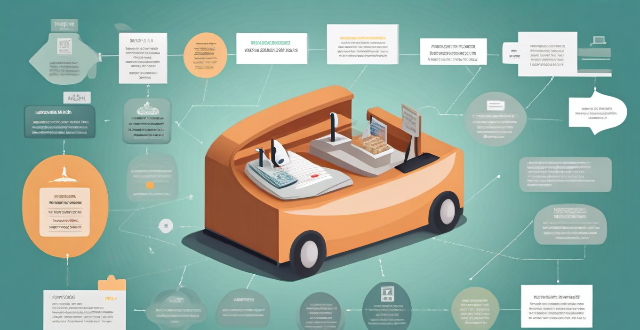
What is credit monitoring and why is it important in credit management ?
Credit monitoring is the process of tracking and analyzing a borrower's credit history, including payment behavior, outstanding debts, and changes in credit scores. It is important for early warning signals of potential default or delinquency, accurate risk assessment, fraud prevention, customer relationship management, and compliance with regulations. By continuously monitoring a borrower's credit history, lenders can update their risk assessments, prevent fraud, tailor their products and services to better meet their customers' requirements, and ensure they are meeting regulatory requirements.

Can I report telecommunications fraud to any authority ?
Telecommunications fraud is a serious issue that can have significant financial and personal consequences for victims. It is important to know where and how to report such incidents to ensure that appropriate action is taken. In this article, we will explore the various authorities to which you can report telecommunications fraud. The Federal Communications Commission (FCC) is the primary agency responsible for regulating interstate and international communications by radio, television, wire, satellite, and cable in the United States. The FBI is responsible for investigating federal crimes, including telecommunications fraud. Each state has an attorney general who is responsible for protecting consumers within their jurisdiction. Local law enforcement agencies also have the authority to investigate complaints and work with other agencies to pursue legal action against those responsible for fraudulent activities.

How can women avoid falling victim to financial scams and fraud ?
Financial scams and fraud can target anyone, including women. To avoid falling victim to these schemes, it's crucial for women to educate themselves about common scams like phishing, romance, and investment frauds. Safe online habits, such as securing devices and being cautious with personal information, are also essential. Regularly monitoring finances, using credit cards wisely, building a support network of professionals and trusted friends or family, and reporting suspected fraud immediately are further protective measures. Staying informed and vigilant significantly reduces the risk of financial loss due to scams and fraud.

How can I educate my family about telecommunications fraud ?
Telecommunications fraud is a serious issue that can have devastating consequences for individuals and families. To protect themselves from becoming victims, it's important to educate loved ones about the risks and ways to avoid them. Here are some steps to follow: Understanding Telecommunications Fraud: Make sure everyone understands what telecommunications fraud entails and how it works. This includes phishing scams, vishing attacks, smishing schemes, and tech support scams. Recognizing Red Flags: Educate your family on the common signs of telecommunications fraud, such as urgency, unexpected requests, too good to be true offers, threats or intimidation. Prevention Tips: Share prevention tips with your family to help them avoid falling prey to scams. These include staying informed, verifying sources, securing devices, using anti-fraud tools, being cautious online, limiting personal exposure, and reporting suspected fraud. Action Plan: Create an action plan for your family in case they encounter a potential fraud attempt. This includes stopping and thinking before acting impulsively, consulting family members for a second opinion, contacting authorities if convinced it's a scam, and documenting everything related to the suspected fraud for future reference.

How does Fintech improve customer experience in banking ?
Fintech has transformed the banking industry by providing innovative solutions that improve customer experience. It offers personalized services, faster transactions, enhanced security, and innovative features. Fintech companies provide a seamless user interface, personalized financial advice, customized products, faster transactions, instant access to information, streamlined processes, robust security measures, transparent fees, regulatory compliance, mobile payments, peer-to-peer lending, crowdfunding, and exploration of cryptocurrencies and blockchain technology. These advancements have significantly improved customer experience in banking and will continue to shape the future of banking as technology evolves.
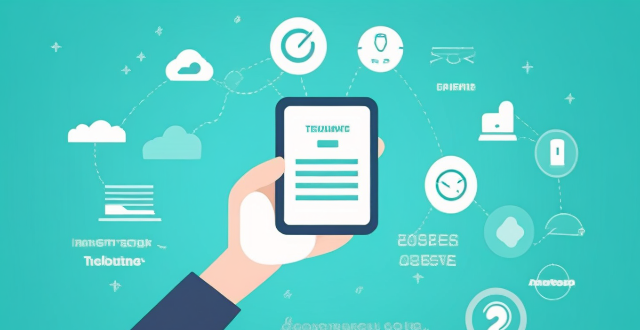
How can I protect myself from telecommunications fraud ?
Telecommunications fraud is a serious issue that can have devastating consequences for victims. It involves unauthorized access to personal and financial information through various communication channels such as phone calls, text messages, emails, and social media platforms. To protect yourself from telecommunications fraud, you should be wary of unsolicited calls and messages, use strong passwords and two-factor authentication, keep your devices and software up-to-date, be cautious with financial transactions, educate yourself and stay informed about the latest scams and fraudulent activities. By following these tips, you can significantly reduce your risk of falling victim to telecommunications fraud.

How can I prevent my personal information from being used in telecommunications fraud ?
To protect your personal information from telecommunications fraud, follow these steps: be cautious with personal information, use strong passwords and two-factor authentication, keep software and devices updated, be wary of suspicious emails and links, and educate yourself about common scams. By taking these precautions, you can reduce the risk of falling victim to telecommunications fraud.

How is AI changing the field of finance and banking ?
AI is revolutionizing the finance and banking industry by improving efficiency, accuracy, and customer experience while streamlining risk management processes. AI-powered algorithms can analyze vast amounts of data quickly and accurately, leading to faster and more informed decisions. Automated processes save time and reduce human error. Fraud detection is enhanced by analyzing patterns in customer behavior and transactions. Personalized customer experience is provided through detailed profiling and predictive analytics. Risk management is streamlined with credit risk assessment and market risk analysis.
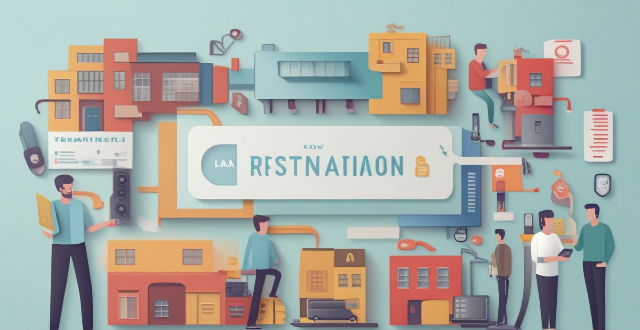
How can automation be used to improve customer service ?
Automation can significantly enhance customer service by streamlining processes, reducing errors, and providing consistent support. It enables personalized communication through chatbots and email automation, efficient processes via self-service options and backend automation, a consistent experience with standardized responses, cost-effective solutions through scalability, and continuous improvement using feedback loops. As technology progresses, the potential for automation in customer service will continue to expand, leading to more innovative ways to meet customer needs.

How can sports marketing help to build customer loyalty ?
Sports marketing is a powerful tool that can build customer loyalty by leveraging the emotional connection between fans and their favorite teams. Strategies include sponsorships, promotions, giveaways, and social media engagement to create a sense of shared identity and community among customers. Examples include Nike's sponsorship of the Brazilian national football team, Coca-Cola's partnership with the Olympic Games, Budweiser's "Up for Whatever" campaign, McDonald's "McRib" promotion during the World Series, ESPN's social media presence, and Red Bull's extreme sports content on social media channels. By establishing themselves as trusted partners of popular sports teams and events, businesses can increase customer loyalty and brand recognition.

How do I contact customer service for my mobile operator ?
How to Contact Customer Service for Your Mobile Operator

How can I compare different online shopping sites for their customer service ?
In this article, we discuss how to compare different online shopping sites for their customer service. The first step is to research and gather information by reading reviews and testimonials, checking social media presence, and asking for recommendations from friends or family. The second step is to analyze the information by comparing customer service options, evaluating response time, and assessing quality of service. The final step is to make a decision based on weighing pros and cons and trying before you buy. By following these steps, you can choose an online shopping site that offers excellent customer service and meets your needs.

Which shopping apps have a strong focus on customer service and support ?
The provided text discusses the importance of customer service and support in shopping apps. It then goes on to highlight five notable shopping apps—Amazon, Shopify, Etsy, eBay, and Alibaba—that prioritize these aspects. Each app is described in terms of its unique features and services that enhance user experience. For Amazon, it's the live chat and email support, 24/7 availability, and the Mayday button for Fire devices users. Shopify is praised for its multichannel support, extensive knowledge base, and active community forums. Etsy is lauded for its personalized assistance, seller education, and resolution center. eBay's detailed resolution process, security measures, and seller protections are highlighted. Lastly, Alibaba is commended for its Trade Assurance program, legal services, and supplier verification. In conclusion, these shopping apps understand the significance of supporting their users throughout the shopping journey, each offering unique strengths in customer service and support.

What kind of customer feedback has been received so far for the new product ?
The new product has received mostly positive feedback, withThe new product has received mostly positive feedback, with user-friendly interface, speed However, there have been concerns about compatibility issues, software bugs, and pricing. Some customers also mentioned the need for additional features and improvements in customer support services. Overall, the feedback will be used to make necessary improvements and meet customer expectations.

What role does artificial intelligence play in Fintech ?
The Role of Artificial Intelligence in Fintech Artificial intelligence (AI) has revolutionized the financial technology (Fintech) industry by making financial services more efficient, personalized, and accessible. AI is used in various ways in Fintech, including risk management and fraud detection, personalized customer experience, automated trading and investment management, credit scoring and loan approvals, and regulatory compliance and reporting. These applications have improved the accuracy and speed of financial processes, reduced costs, and enhanced customer satisfaction. As AI technology continues to advance, it will likely lead to even more innovative applications in Fintech.

How can I recover from telecommunications fraud ?
In summary, to recover from telecommunications fraud, one should immediately report suspicious transactions to their bank or financial institution, file a police report, and consider alerting relevant agencies. It's essential to protect personal information, update security measures, and educate oneself and others about scams. Legal action may be necessary for significant losses, and strengthening online security is crucial for future protection.

What role does technology play in modern finance and banking ?
Technology has revolutionized the finance and banking industry by enhancing efficiency, improving customer experience, and driving innovation. Automation, streamlined processes, and cost reduction have made financial services more efficient. Personalization, accessibility, and advanced cybersecurity measures have improved customer experiences. Fintech startups, blockchain technology, and cryptocurrencies are driving innovation in the industry. As technology continues to evolve, it will play an even greater role in shaping the future of finance and banking.
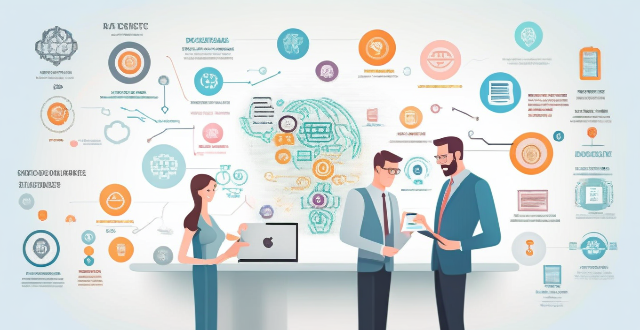
What are the common challenges faced in credit management ?
Credit management is a crucial aspect of any business, but it comes with several challenges. These include late payments, high-risk customers, inaccurate information, fraudulent activities, regulatory compliance, resource constraints, customer retention, technology adoption, global expansion, and data privacy. Addressing these challenges proactively and implementing effective strategies can improve credit management processes and minimize associated risks.

What are some signs that I may be a victim of telecommunications fraud ?
Telecommunications fraud is a serious issue with significant financial and emotional consequences. It's important to be aware of the signs that you may be a victim, such as unrecognized charges on your phone bill, unfamiliar phone calls or messages, changes to your service settings, suspicious account activity, and new accounts opened in your name. To protect yourself, contact your service provider immediately if you notice any suspicious activity, change your passwords regularly, monitor your accounts closely, and consider additional security measures such as two-factor authentication.
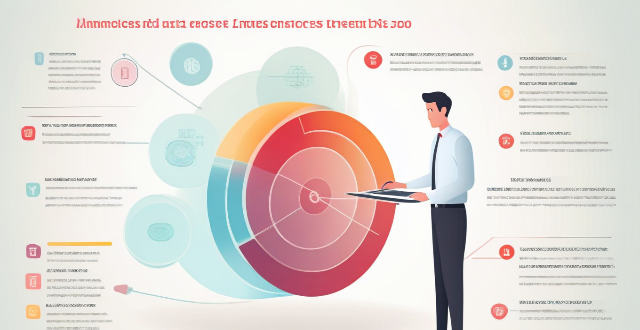
How does network expansion impact customer experience ?
Network expansion improves customer experience by increasing coverage, reducing disconnections, boosting speed and reliability, and enhancing accessibility to services and devices.
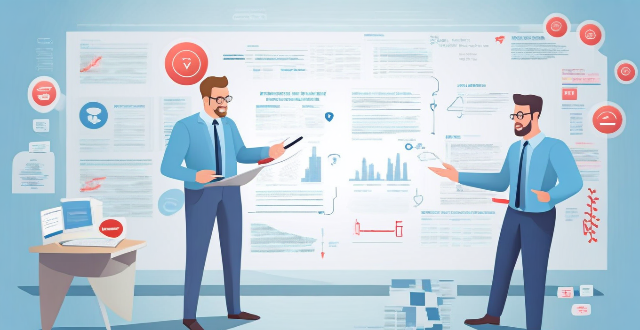
How can businesses benefit from implementing digital identity solutions ?
Digital identity solutions offer businesses enhanced security, improved customer experiences, increased efficiency, and scalability. They reduce fraud risks, protect data, streamline onboarding, personalize services, automate processes, and provide reliable data for better decision-making. These benefits help businesses stay compliant with regulations, save costs, and adapt to evolving technology.

How can companies improve their products based on customer reviews ?
Companies can improve their products by listening to customer reviews, addressing negative feedback, encouraging constructive criticism, implementing continuous improvement, and leveraging positive reviews. This involves analyzing feedback using NLP tools, categorizing issues, prioritizing actions, investigating complaints, implementing fixes, communicating changes, creating a supportive environment for honest feedback, establishing a feedback loop, iterating rapidly, monitoring progress, highlighting strengths, celebrating successes, and maintaining quality. By doing so, companies can enhance their offerings and stay relevant in the market.

How does technology impact credit management practices ?
Technology has revolutionized credit management practices by automating processes, enhancing data analysis capabilities, and streamlining communication channels. Automated credit scoring systems save time and reduce human error, while accounts receivable management software helps businesses track outstanding invoices and initiate collections actions if necessary. Technology also enables businesses to monitor changes in a borrower's creditworthiness in real-time, allowing them to make informed decisions about extending credit or adjusting terms. Enhanced data analysis tools like artificial intelligence and machine learning help businesses gain insights into customer behavior and make better-informed decisions about extending credit. Predictive analytics can identify potential risks, sentiment analysis gauges customer sentiment towards products or services, and fraud detection technology reduces the risk of financial losses due to credit card fraud or identity theft. Streamlined communication channels such as online portals, mobile apps, and chatbots powered by AI improve customer service and efficiency in credit management practices. Overall, technology has had a profound impact on credit management practices and will continue to do so as it evolves.

How do retailers benefit from offering a buy one get one free promotion ?
Retailers can benefit from offering a "buy one get one free" (BOGO) promotion by attracting new customers, increasing sales, managing inventory more effectively, enhancing brand perception, and collecting valuable customer data. This marketing strategy not only boosts short-term revenue but also helps build long-term customer loyalty and brand equity.

What are the terms and conditions of using a cashback website ?
Cashback websites offer users the opportunity to earn money back on purchases made through their platform. However, there are certain terms and conditions that users must adhere to in order to take advantage of these offers. These include age restrictions, account verification, residential address requirements, expiration dates for offers, minimum purchase amounts, exclusions, limitations on use, payment methods for redeeming rewards, withdrawal fees, processing times, data protection measures, password security, fraud prevention, customer support, dispute resolution processes, and refund policies.

How can smart contracts improve supply chain management ?
Smart contracts can revolutionize supply chain management by automating transactions, enhancing transparency, improving efficiency, enabling real-time tracking, and reducing risks. This decentralized and automated approach can save time, reduce costs, prevent fraud, and improve overall trust between parties in the supply chain.
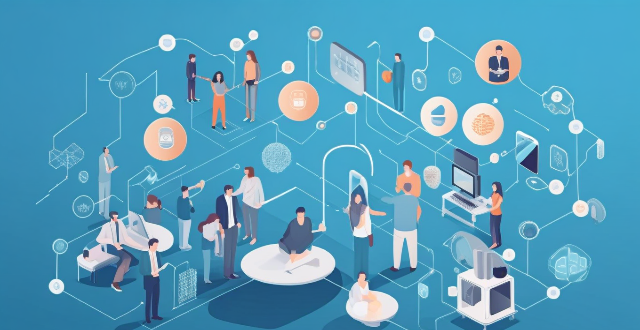
What are some real-world applications of natural language processing (NLP) in AI ?
Natural Language Processing (NLP) is a subfield of AI that deals with the interaction between computers and humans using natural language. It has numerous real-world applications in various industries such as healthcare, finance, marketing, and education. In healthcare, NLP can analyze medical records to extract relevant information and aid in drug discovery. In finance, it can perform sentiment analysis and detect fraudulent activities. In marketing, NLP can automate customer service tasks and conduct market research. In education, it can create intelligent tutoring systems and develop language learning applications. As technology advances, we can expect more innovative uses of NLP in various industries.

What are the benefits of using Cross-Border Payment ?
Cross-border payments are essential for global commerce, offering benefits such as increased access to markets, improved efficiency, lower costs, greater flexibility, enhanced security, and scalability. These advantages help businesses expand globally, making cross-border payments a vital tool for modern commerce.